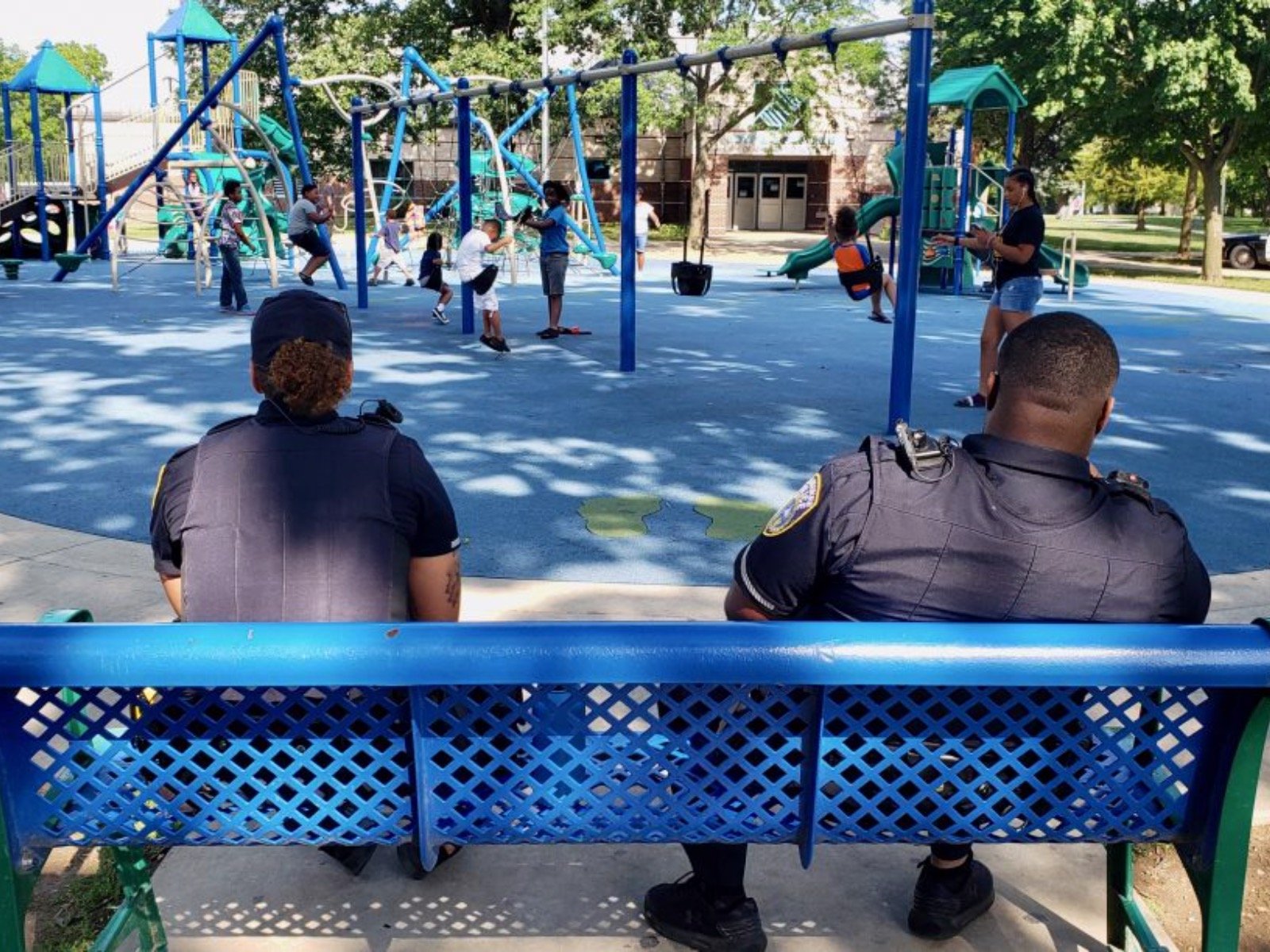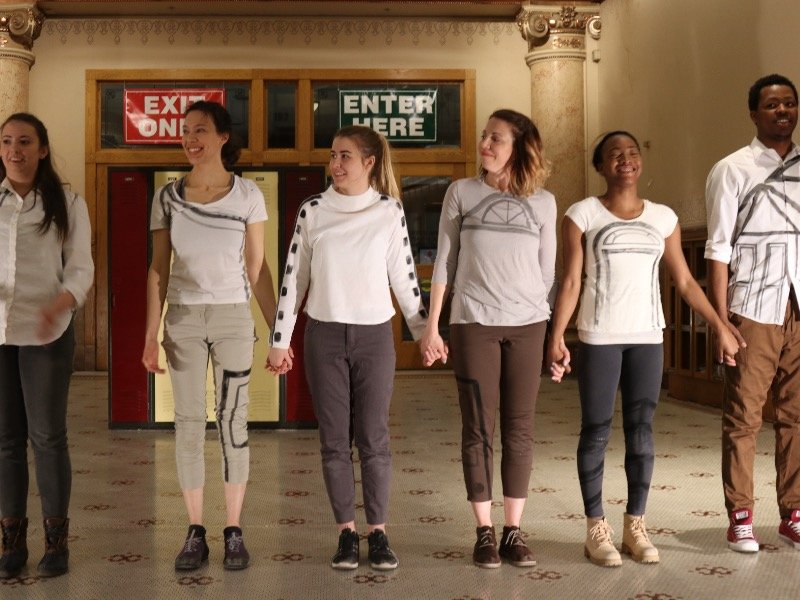In the midst of the Milwaukee unrest two weekends ago, the above image quickly began to make the rounds on social media. It’s certainly a potent photo – a looter amidst chaos quickly escaping with an armful of products. It’s certainly a photo that, for some, perfectly fit their preferred narrative of that Saturday night, that people were out of control for illogical and selfish reasons.
It’s also certainly not a photo from Milwaukee that night. Or even a photo taken this year.
No, that image – captured by Robert Cohen of the Associated Press – is from the Ferguson riots and protests in August of 2014. But after 5,004 retweets and 6,576 likes – and that’s just based off this one tweet alone – for the many people following the story on social media both here and around the nation, that photo became a part of the story in Milwaukee. And it was far from the only concocted piece of news to emerge that night. That video of black protesters hunting down and beating up white people, for instance, further fueling reports of racially motivated violence during the uproar? A trick of editing to turn words into unsubstantiated violent action.
Dr. Erik Ugland, an associate professor in the College of Communication at Marquette University, was one of many watching the coverage of Milwaukee during the unrest – both as one who lives in Milwaukee and as one who studies and teaches media and media ethics. He noticed several of these fake reports and accounts popping up, serving as perfect bait for those on both sides looking for "confirmation bias" (aka seeking out information that reinforced previous beliefs or perspectives) or simply for updates.
"(When news breaks), there’s an even greater desire for immediacy," Ugland said. "Our tendency now is to go online and expect all the answers right away, and if there aren’t any answers, we’ll just go with the ones being supplied for us by whomever it is. We have this reflexive need to know everything right away, and if somebody offers us even a glimmer of a possible explanation, we seize on it immediately. We retweet it and we internalize it – sometimes without question – because it’s filling that desire we have to know something."
With social media, it’s never been easier to know about breaking news as it’s happening on the ground – and then share that news with others, to serve as an outlet to others. But as with most things on the internet, the facts can easily become polluted with ever-more-convincing half-truths, lies and oftentimes simple confusion.
Take for instance the earliest social media reports and tweets coming out of Dallas during the shooting last month. The earliest word on social media – from those simply following the story, as well as from professional news organizations, parsing through what information they’d gathered and gleaned, and trying to report and inform as quickly as possible – claimed there were multiple shooters, and a suspect identified shortly after ended up being simply a participant at the rally under fire.
National media and mainstream news outlets often get things wrong in the early phases of breaking news – and Ugland noted they weren’t faultless in their Milwaukee coverage, as well. He said that news organizations repeatedly leading with photos of the same flaming car in their coverage gave the idea "the whole city is up in flames and it’s absolute mayhem when it really was a short burst of vandalism … to be put into perspective," and that the clean-up and recovery efforts the following days were often barely covered.
But as both consumers and, frequently , disseminators of that information, the responsibility also falls on us to be smart during moments of breaking news.
"There are a lot of positives about social media: You don’t have to work through the traditional media filters anymore … and there’s a democratizing effect that social media fosters by giving everybody an opportunity to offer their two cents or their perspective," Ugland said. "But sometimes the accounts aren’t credible. Sometimes people are deliberately lying, or sometimes the video people post isn’t what it purports to be or shows you a sliver of the scene."
So how can we become better social media consumers when news breaks? For one, according to Ugland, "corroborate, corroborate, corroborate."
"If somebody posts something that seems interesting, look and see if other people are reinforcing its validity," he recommends. "Is it being reported in any mainstream organization, or is it just floating around on social media? Check the source of who’s posting it, but also check the source within the source. If somebody’s posting a bit of information, who’s their source and where’d they get it from?"
Considering the sources of your information and tracking their reputations is a major part of Ugland’s advice for being responsible when news breaks. For instance, The Media Research Center, Ugland noted, is a right wing-slanted source aiming to find liberal bias in the media, while sites like Occupy Democrats and Addicting Info are "beyond biased" to the left. Identify sites like these that deliver fabricated or misconstrued information and block them.
Another thing you can do on social media when news breaks? In some cases, nothing is the best approach.
"Our better impulse in those situations would be to wait and see," Ugland said, "because as we see, over and over again, there’s not only a lot of good-intentioned-but-flawed reporting, there’s also deliberate falsehood and mischief designed to shape the narrative and frankly fool people. So part of being a savvy media consumer is just being patient."
One doesn’t have to be completely helpless, however. Ugland said that you can play your part in making social media better, smarter places to gather news, as well. Sites like First Draft News, Ugland noted, can help you take a shared video or photo and confirm its authenticity – or, if it’s a fake, help set the record straight.
"Point out things that have been debunked or say, ‘Check Snopes on this,’ instead of staying passive," Ugland said. "We can all play a role in making sure the truth comes out a little quicker."
As much as it is a gigantic cliché to say that one has always had a passion for film, Matt Mueller has always had a passion for film. Whether it was bringing in the latest movie reviews for his first grade show-and-tell or writing film reviews for the St. Norbert College Times as a high school student, Matt is way too obsessed with movies for his own good.
When he's not writing about the latest blockbuster or talking much too glowingly about "Piranha 3D," Matt can probably be found watching literally any sport (minus cricket) or working at - get this - a local movie theater. Or watching a movie. Yeah, he's probably watching a movie.







